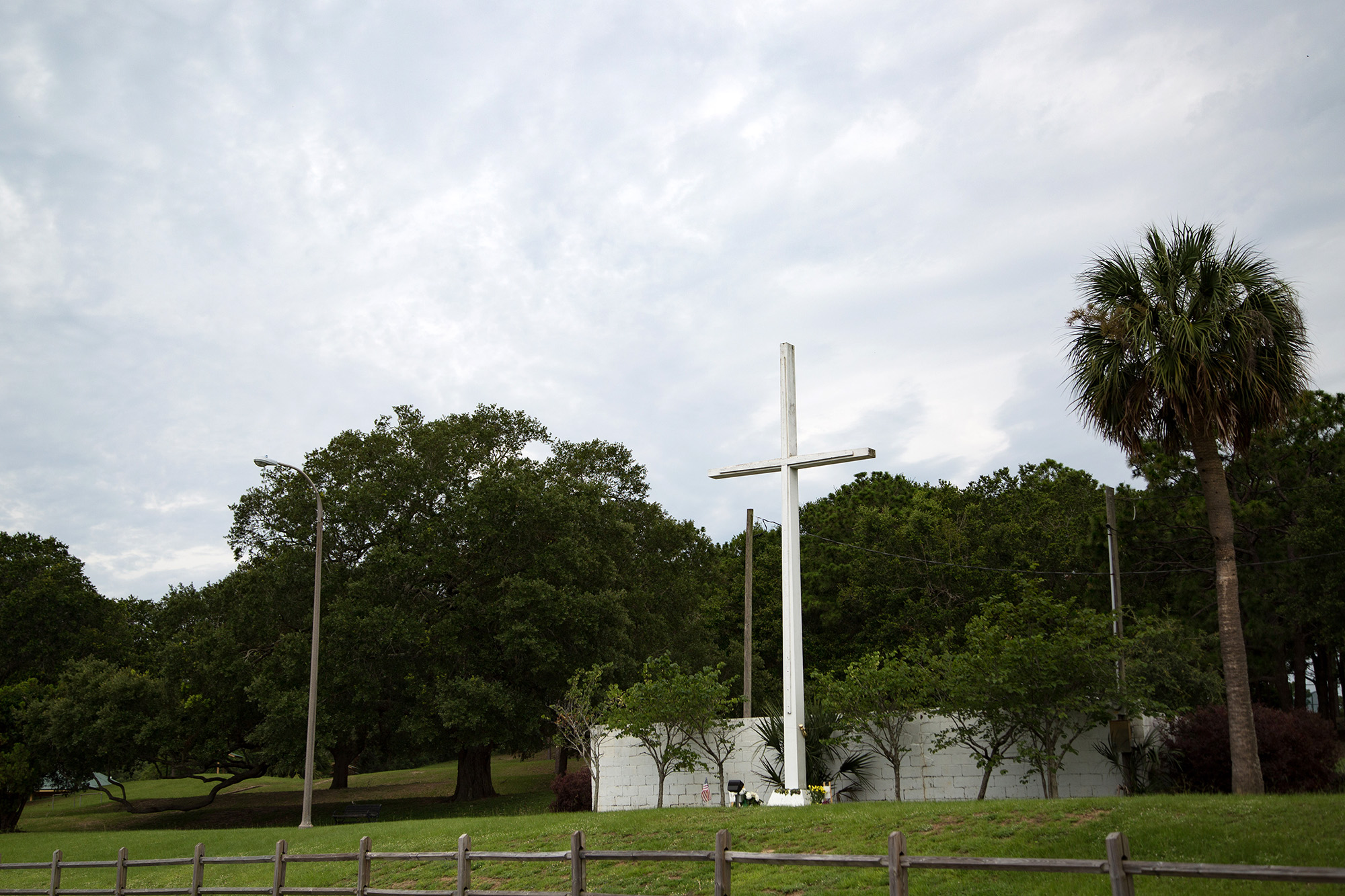
PENSACOLA, Fla. (BP) — A 77-year-old cross in a Pensacola, Fla., public park was defended May 16 when city officials appealed a court ruling that the monument be torn down.
 In a two-year legal battle pitting the city against secular humanists and self-proclaimed “nontheists,” Pensacola presented its case to the U.S. Court of Appeals for the Eleventh Circuit.
In a two-year legal battle pitting the city against secular humanists and self-proclaimed “nontheists,” Pensacola presented its case to the U.S. Court of Appeals for the Eleventh Circuit.
“Religious symbols aren’t like graffiti that the government should erase as soon as someone complains,” attorney Luke Goodrich said in a press release after the court hearing. “The Constitution allows the government to recognize the significant role of religion in our nation’s history and culture.”
Goodrich is vice president and senior counsel at the Becket Fund for Religious Liberty, representing the city against the American Humanist Association and the Freedom from Religion Foundation. The plaintiffs prevailed in a lower court last year when a judge ruled the cross violates the Establishment Clause of the U.S. Constitution.
The 34-foot cross had stood in Pensacola’s 28-acre Bayview Park since 1941 without complaint, the city has said, as a World War II monument donated by a local community service group.
“Pensacola is proud of the pivotal role it has played in American history,” Pensacola Mayor Ashton Hayward said in the Becket press release, “and we should be free to celebrate that history.”
The plaintiffs lack standing in the case, Becket has said, and the city has a constitutional right to preserve the cross in its current location.
“This Court has never found standing to challenge a religious display unless plaintiffs incurred costs to avoid the display or could not avoid it during normal interactions with the government,” Becket said in a court brief defending the city. “Plaintiffs admit that neither circumstance is present here. Thus, they lack standing.”
At least two of the people the plaintiffs represent live in Canada, Becket said, and a third one lives outside the city. Only the fourth person represented by the plaintiffs lives in Pensacola, Becket said, and that person uses a cross “for his own ‘satanic purposes.'”
The cross is one of more than 170 displays commemorating Pensacola’s history and culture.
“Far from endorsing Christianity, the cross memorializes how Pensacolians came together during World War II and acknowledges ‘the role of religion in American life,’ Becket said, referencing legal precedent.
Many organizations and state governments have filed court briefs in support of Pensacola. Among them are a group of Jewish groups including Jews for Religious Liberty, the Coalition for Jewish Values and Agudath Israel of America. Joining Florida in filing friend of the court briefs are Alabama, Georgia, Indiana, Kansas, Louisiana, Missouri, Nebraska, Nevada, North Dakota, Ohio, Oklahoma, South Carolina and Utah.
A court ruling is expected this summer, Becket said.













